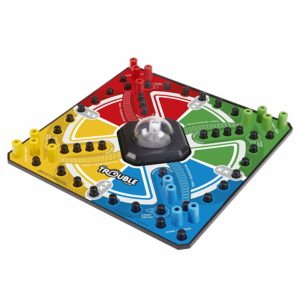
20 Snowman Crafts
Who wants to build a snowman? We do! This week we’ve rounded up some snowman crafts and activities. Each link contains a fun…
Occupational therapists……it’s almost that time of year when we feel refreshed and excited to begin a clean slate. If you’re like me, I’ll write the previous year on my documentation for at least a month into the new year!
Trauma-informed care begins with RELATIONSHIPS! Taking care of yourself is step one when trying to help others. OTs are givers by nature and we tend to work until we are so drained. When you feel worn down, you can not pour any more into your patients. Empathy takes energy from the therapist/listener and finding ways to relax and even taking simple steps such as taking brain and breathing breaks will help. Forming a trusting relationship is critical when working with your students. The entire therapy staff should meet to talk about the importance of self-care for healthcare employees. If you want to learn more about trauma-informed care in OT, take my new course here.
So many times during my day, I find myself slouching in my chair. Take time to pause when you are working on reports and documentation to stretch and bend. Remember that when your pelvis tilts backward, your breathing is not as deep. Do some neck rolls and try to stretch into extension during long times of seated work.
Using evidence-based practice in today’s busy clinic is tough but as responsible OTs, we need to integrate this concept into our daily work. Choose one therapist friend/co-worker and discuss the article together. Talk about how the article supports or doesn’t support treatments you’re currently using. I find that when working with another therapist, I am more likely to read the article and get excited about using it in my practice. Need articles? Click here for Google Scholar to search for topics that interest you.
When we’re in our fieldwork, we tend to be very creative. However, we get into ruts and forget how to adapt existing activities for our students. Use dice or playing cards to determine how many finger warm-ups to do or how many times to complete an exercise or activity. I even use the Trouble game dice ‘bubble’ to decide how many times a student completes an obstacle course, for example. 
It’s amazing how our work area gets cluttered throughout the year. We get so busy and things pile up. We don’t even see how bad our work area has become! Our brains work toward energy efficiency…..if it’s not meaningful, we tend to forget it. One year I cleaned out my therapy bag. I didn’t even notice how much was buried at the bottom. It was so much lighter after I was done. I promise your neck and back will thank you for lightening your load a bit!
My sister’s a music therapist. She’s always telling me about the fun ways her students use their bodies to make music. Use a drum to work on turn-taking and rhythm. Try to make your own instrument, look at our music therapy board on Pinterest for ideas. Ask your student what kind of music she enjoys and play it for a gross motor warm-up time. One of my favorite activities to boost student self-esteem is to come up with a theme song. For instance, one of my students chose the Star Wars theme music for his ‘power song.’ Whenever he felt upset or had a bad day, he played his song and felt better.
 Cara’s newest book! Interoception, How I Feel: Sensing My World from the Inside Out.
Cara’s newest book! Interoception, How I Feel: Sensing My World from the Inside Out.
When I researched for my newest book, I learned so much! In fact, the reason I love writing books is that I love digging into the topic and learning as much as I can about the subject. There’s always something new in OT! So many emerging practice areas and new studies. Want to learn more about our eighth ‘sense?’ Interoception is NOT a new topic…..it’s been around since the early 1900s. It was not discovered by an OT but by a neuroscientist. Read 5 Facts About Interoception in our earlier post here. **In case you missed it, click HERE to read last year’s 15 New Year Tips for Occupational Therapists post.
Thanks for reading and I wish you a wonderful and blessed 2019! 


